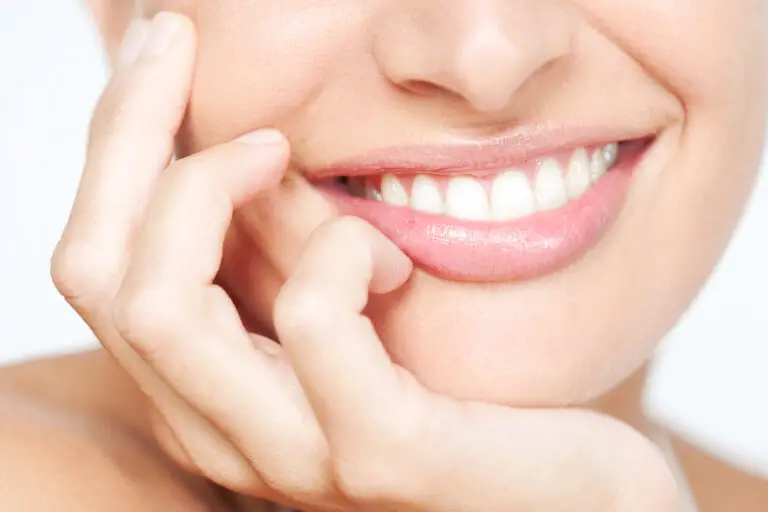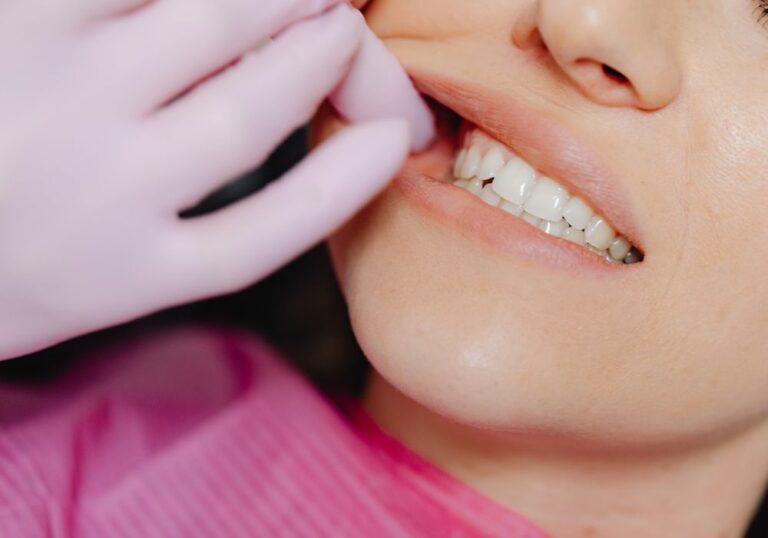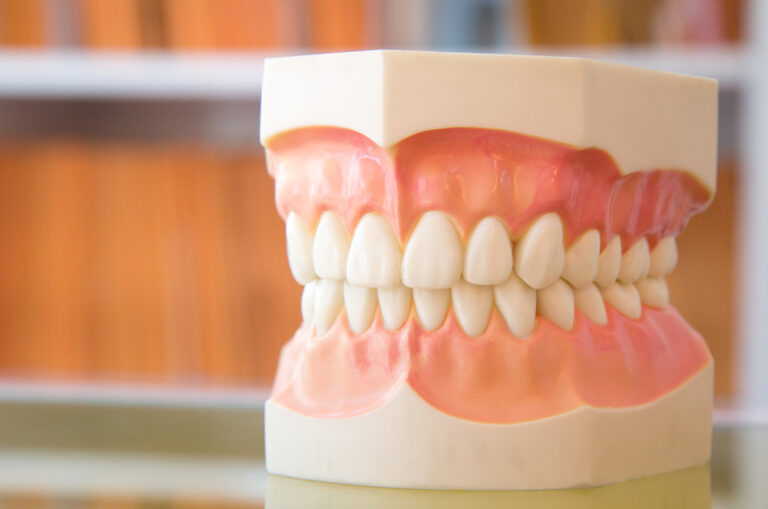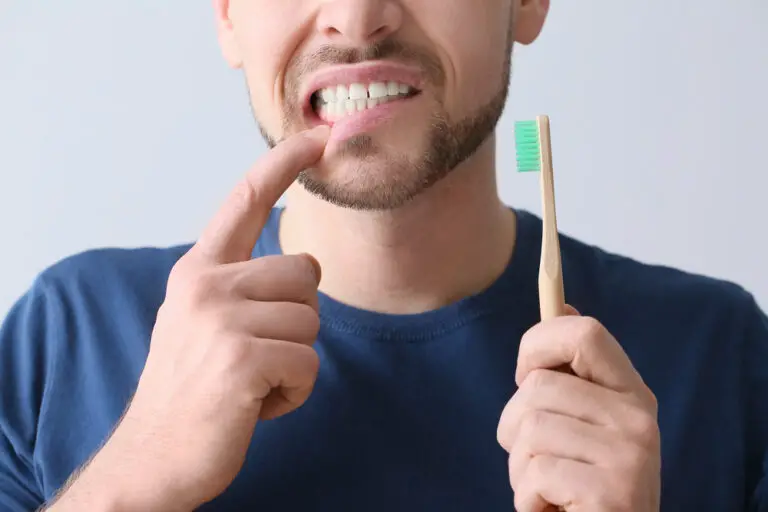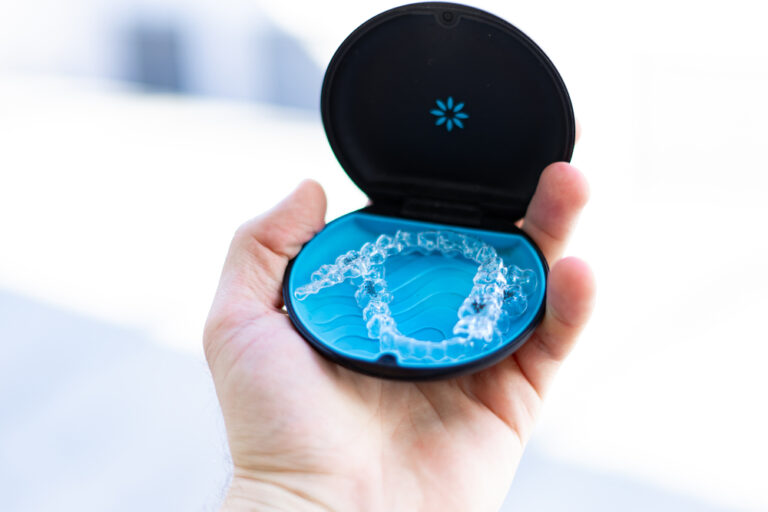Have you ever bitten into something and felt a sudden, sharp pain in just one tooth? This isolated tooth pain when biting down can be alarming and concerning. While it may end up being minor, it’s important not to ignore toothaches. Ongoing pain when chewing or biting on a particular tooth warrants an evaluation by your dentist.
There are a number of potential causes of tooth sensitivity and pain centered on one tooth. Determining the exact source of the pain allows your dentist to administer the proper treatment. Some causes of localized toothaches are relatively simple to treat, while others may indicate complex dental problems needing more extensive procedures.
Leaving toothaches untreated allows them to escalate into bigger issues. So if you have pain when biting, take steps to identify the cause and seek professional dental care right away. With proper care, the discomfort can be remedied before it turns into a much larger dental problem.
What Does This Pain Mean?
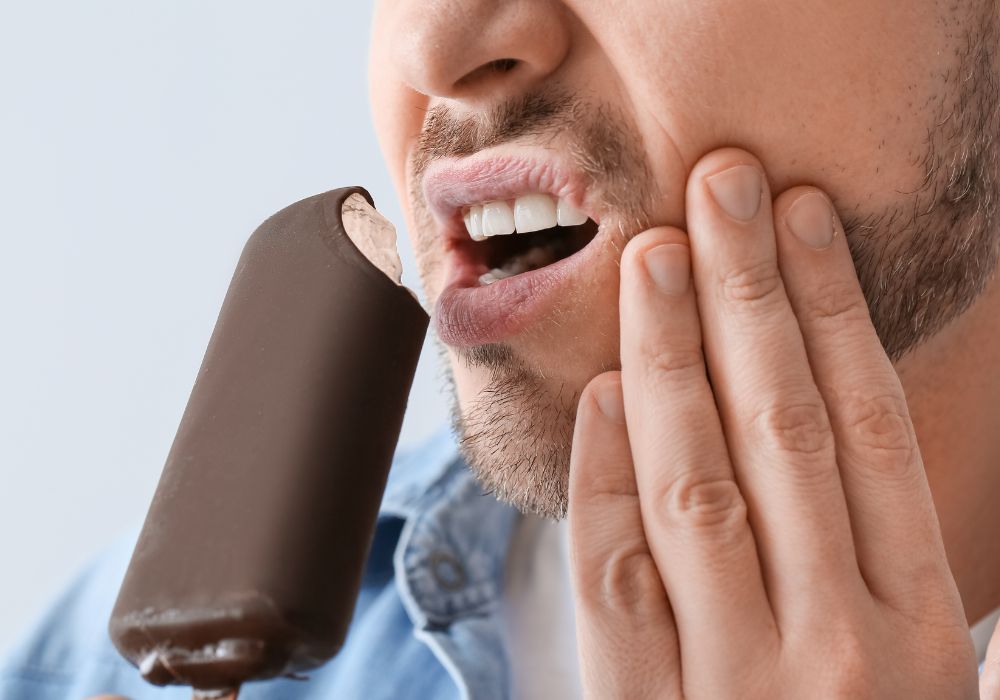
Biting or chewing should not normally cause discomfort in your teeth. Your teeth are comprised of extremely hard and durable enamel, dentin, pulp and cementum layers. These structures equip your teeth to withstand the immense pressures and forces exerted during eating and chewing.
When you experience isolated pain in just one tooth when you bite down, it signifies a specific problem occurring within that tooth. This differs from general dental sensitivity or soreness that involves multiple teeth, which usually indicates a common condition like bruxism or receding gums.
Since the pain is localized, identifying the affected tooth can help your dentist narrow down the possible causes and pinpoint the origin. Make note of exactly which tooth hurts when you bite down, the specific location of the pain (e.g. upper left molar), and if it only occurs with certain foods or temperatures.
Your dentist will examine the problematic tooth for visual signs of damage like cracks or caries. They may tap gently on your teeth to test their sensitivity and health of the pulp. Additional x-rays and diagnostic tests can check for issues below the surface, such as infections or abscesses at the tooth roots.
Common Causes of Tooth Pain When Biting Down
A number of different dental problems can cause discomfort or pain when chewing and biting on a particular tooth. Here are some of the most common culprits:
Dental Caries
Dental caries, also known as cavities or tooth decay, are one of the primary causes of tooth pain when biting. Caries develop when plaque bacteria digest the sugars in food and produce acids that erode and demineralize the enamel surface of your teeth. This forms holes and lesions that progressively get larger over time.
As the carious lesion advances deeper towards the inner pulp tissue, the decay can trigger sensitivity and pain when biting down. The pulp contains nerves and blood vessels, which become aggravated and inflamed by exposure to bacteria, food particles, and temperature changes.
Small occlusal cavities starting on the biting surfaces of back teeth are common sources of bite pain. The cracks allow irritants to reach the sensitive dentin layer right beneath the enamel. Larger cavities can completely penetrate through the outer layers, hitting the pulp and nerves for more severe pain.
Cracked or Broken Teeth
Fractures and cracks in teeth are another prevalent reason for toothaches when chewing or biting. Cracks allow the inner layers of the tooth to be exposed to bacteria, cold and hot temperatures, and chewing pressure.
Vertical root fractures are cracks extending down the root of the tooth below the gum line. They frequently cause pain when biting that may come and go. The discomfort results from disturbance of the tooth’s pulp tissue. Other types of cracks can form in the enamel, into the dentin, or horizontally across the chewing surface.
Chipped or broken cusps and teeth also trigger bite sensitivity. Major trauma that splits or breaks a tooth in half usually causes intense pain when biting down. The exposure of the inner tooth structures to the oral environment elicits inflammation and nerve irritation.
Dental Abscess
A dental abscess is a pocket of intense infection and pus located around the root of a tooth. Abscesses cause throbbing pain when biting or chewing with the affected tooth due to increased pressure on the abscess. The pain may start mild but quickly escalates as the infection grows.
Dental abscesses develop from advanced tooth decay, prior dental work like a root canal getting re-infected, or trauma that cracks the tooth and allows bacteria inside. The bacteria multiply rapidly forming a swollen mass pressing on the root and bone. This elicits inflammation and damage, leading to severe sensitivity and pain.
Problems with Dental Work
Missing, cracked, or loose fillings, inlays, onlays and crowns can all potentially cause pain when biting down. As the restoration gets dislodged, it exposes some of the inner aspect of the tooth underneath. This can lead to sensitivity to hot, cold, and pressure when chewing foods.
Receding or spread of underlying decay around an existing restoration allows leakage and food packing, causing bite sensitivity. The key is to get defective restorations replaced or repaired quickly, before more extensive damage and cavities develop. Otherwise, you may end up needing more complicated treatment like root canals.
Bruxism and Clenching
Some people unconsciously grind their teeth or clench their jaw during sleep or when stressed. This puts extra pressure on the chewing surfaces of the teeth and can chip enamel or break tooth structure. It can also cause muscle soreness and pain in the jaw joints.
Severe bruxism and clenching episodes can result in tooth sensitivity and discomfort when biting down. Since this usually involves forceful sliding of the upper and lower teeth, the pain is rarely isolated to just one tooth but rather affects multiple teeth.
Periodontal Disease
Advanced cases of gum disease can also sometimes contribute to tooth sensitivity and pain when biting down. Periodontal disease leads to progressive loss of the bone and soft tissues supporting the teeth.
As gums recede due to periodontitis, more of the sensitive root surface gets exposed. This allows heat, cold, food particles, and pressure to reach the unprotected dentin and cementum. The diminished gum attachment also leads to increased tooth mobility, which puts more stress on the sensitive root areas during biting and chewing.
When to See an Emergency Dentist Immediately
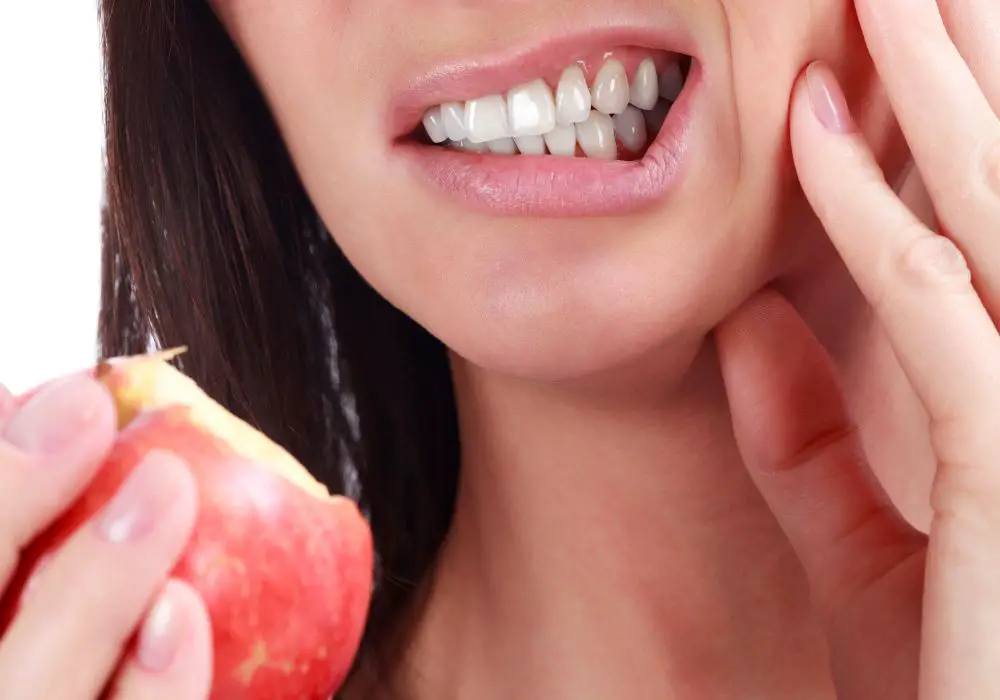
In most cases, you should schedule an appointment with your regular dentist as soon as possible for any tooth pain that arises when biting or chewing and doesn’t resolve quickly. This allows them to determine the cause and begin appropriate treatment before the condition worsens.
However, some circumstances warrant immediately seeking emergency dental care for faster pain relief and to stop progression of damage to the tooth:
- Severe constant dental pain preventing you from sleeping or eating
- Swelling around the tooth, face, jaw, or gum tissues
- Bleeding from the gums adjacent to the painful tooth
- Trauma causing a tooth to become extremely loose, cracked, or knocked out
- A tooth that suddenly becomes painfully sensitive to hot or cold after dental work
- A previously treated tooth becoming painful when biting down
Emergency dental clinics can provide urgent care outside normal office hours to manage dental emergencies. They can carry out temporary repairs and pain relief to stabilize the tooth until more definitive treatment can be done by your regular dentist.
Diagnosis of Painful Teeth When Biting
When you visit the dentist complaining of a painful tooth when chewing or biting down, they will perform a series of diagnostic tests and assessments. This helps identify the exact cause of pain so appropriate treatment can be started.
The dentist will begin by asking questions about your medical history and the onset, location, duration and severity of symptoms. They will have you point out exactly which tooth hurts when biting. Details about any recent dental treatments to that tooth or teeth may also be pertinent.
Next, the dentist performs a clinical examination of your mouth, teeth and gums. They will look for visual signs of problems like tooth fractures, chips, decay, or gum infection and inflammation. Tapping lightly on your teeth tests the health of the pulp tissue inside.
Radiographic images like bitewing and periapical x-rays allow your dentist to detect issues not visible to the eye. Signs of abscesses, deep decay between teeth, bone loss, or cracks may be evident on the films.
Advanced diagnostic tests include pulp vitality testing to check nerve health, and cone beam CT scans to obtain 3D views for a more accurate assessment.
Based on the exam and test findings, your dentist will diagnose the likely source of pain when biting, such as a cavity, cracked tooth, or abscess. A personalized treatment plan can then be outlined to resolve the specific problem.
Common Treatments for Painful Teeth When Biting
The type of dental treatment required will depend on the diagnosed cause of pain when biting down on a tooth:
Dental Fillings or Crowns
For cavities limited to the outer enamel layer, simply removing decayed material and replacing it with a filling is often sufficient. More extensive decay involving the inner dentin and pulp will necessitate a root canal before placing a crown.
Root Canal Treatment
This procedure is done when inner decay reaches the pulp tissue. The infected or inflamed pulp is removed and interior canals cleaned and sealed. A crown is usually placed afterward to protect the now pulpless tooth.
Dental Extractions
Extraction involves complete removal of the tooth and roots. This may be required for non-restorable decay, severe infection, vertical root fractures, or advanced periodontal disease. The gap can be left empty or filled with a dental implant, bridge or partial denture.
Dental Splint or Nightguard
For bruxism and clenching, a mouthguard cushions teeth from grinding forces during sleep. This reduces wearing of the enamel surface and sensitivity when chewing. Addressing sources of stress can further help reduce clenching.
Antibiotics and Pain Medication
Bacterial infections causing abscesses or gum disease often require antibiotics like penicillin or clindamycin to eliminate the bacteria. Pain relievers like ibuprofen or acetaminophen give temporary relief while awaiting dental procedures.
Periodontal Treatment
If gum disease is the culprit, plaque and calculus removal through scaling and root planing helps reduce inflammation. Gum grafts and regeneration procedures can restore lost gum tissues and covering of exposed roots.
Oral Surgery
Surgical tooth extractions, root removal, biopsies, and drainage of dental abscesses may be done if needed. Follow-up antibiotic therapy prevents infection recurrence.
Rehabilitation with restorations, implants or prosthetics after extraction helps maintain proper tooth function for biting and chewing without pain. Ongoing dental visits for exams and professional cleanings are crucial for monitoring and maintenance of any restorative treatments. Practicing good oral hygiene and limiting sugary foods prevents future cavities or tooth fractures that could cause biting pain.
When is Tooth Pain When Biting Down Considered an Emergency?
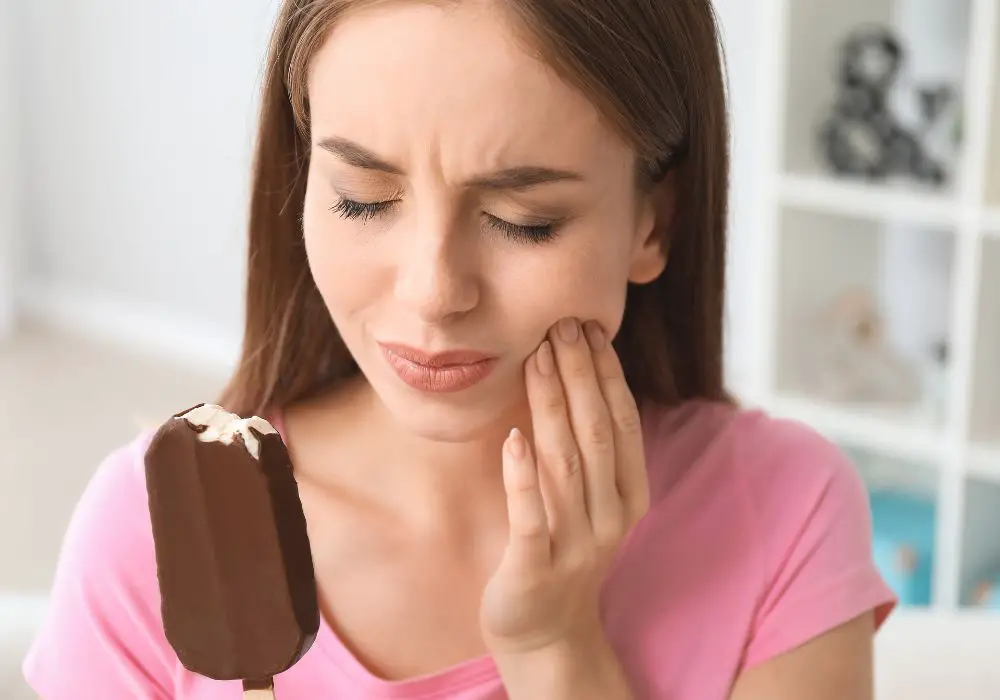
Severe or persistent toothaches when chewing or biting down that do not resolve quickly with over-the-counter remedies warrant prompt dental evaluation. Though many causes of dental pain are not absolute emergencies, it is essential to have them assessed promptly to avoid progression of damage.
Some circumstances that indicate a dental emergency requiring urgent care include:
- Unbearable toothache preventing sleep or eating
- Swelling around the tooth, gums or face
- Bleeding, bad taste, or bad odor from the painful tooth
- Trauma causing loss, displacement or severe cracking of a tooth
- Extreme tooth mobility with minor chewing or biting
The longer these urgent dental issues go untreated, the worse the outcome. For example, trauma can lead to eventual pulp necrosis and abscess if the tooth isn’t stabilized and monitored. Similarly, serious infections left unchecked can spread systemically or lead to complications like cavernous sinus thrombosis.
Seeking emergency dental treatment can provide speedy relief until definitive procedures are done. The emergency dentist may open teeth to drain infections, re-implant knocked out teeth, temporarily splint cracked teeth, provide pain management, or start antibiotics. They can also refer you to a specialist like an endodontist, periodontist or oral surgeon for complex diagnoses.
When to Follow Up with Your Regular Dentist
After any emergency dental visit for severe tooth pain while biting or chewing, you should always have a follow up exam with your regular dentist. They can check healing progress and perform any needed definitive restorations or extractions.
For example, if an emergency clinic accessed your tooth to drain an abscess infection, the root canal and crown placement still needs to be done by your regular dentist for full treatment. Likewise, if a nightguard was given for bruxism, your regular dentist can provide a custom-fitted long term splint.
Even if an emergency clinic extracted an infected tooth, you need follow-up care to assess healing and discuss any prosthetic replacement options. Any post-operative instructions given by an emergency dentist should be strictly adhered to in order to support optimal recovery.
Report any lingering sensitivity or discomfort to your regular dentist at follow-up visits after emergency dental treatments. Proper recovery and repair of injured teeth relies on careful long-term monitoring. Regular dental cleanings and x-rays will also help detect any future problems requiring intervention.
With prompt emergency and ongoing restorative treatment, teeth that have caused pain while biting or chewing can often be saved and restored to full function. Practicing excellent daily oral hygiene and limiting sugar intake prevents repeat dental issues and maintains your healthy smile.
Frequently Asked Questions
Why does the pain come and go?
If the discomfort only occurs occasionally, it may be due to a cracked tooth or filling which is aggravated by certain temperatures or pressure. The pain comes from stimulation of the inner pulp tissue through the crack. See your dentist to identify cracks for repair.
Can teeth be saved once they hurt when biting?
Yes, it’s possible to save and restore teeth to pain-free function even once they’ve become painful from things like decay or cracks. However, the longer treatment is delayed, the lower the likelihood of tooth preservation, so see your dentist quickly.
How can I determine if the pain is from a tooth versus TMJ?
TMJ joint disorders typically cause dull, aching jaw pain made worse by chewing. Toothaches when biting are often sharp, localized to one tooth, and stimulated by temperature changes. Your dentist can definitively diagnose the source based on examination and x-rays.
Should I avoid chewing on the painful tooth?
Yes, try to chew on the opposite side to minimize aggravation of the affected tooth. Soft foods are easier to eat comfortably. But avoid ignoring the pain since diagnosing the cause early optimizes treatment success before major damage occurs.
Is tooth pain ever normal after a new filling or crown?
Some sensitivity when biting down on a newly filled tooth is common and usually fades within a few weeks as tissues adjust to the restoration. But immediate or prolonged intense pain after dental work warrants an urgent dental visit to check for issues like fractured teeth or infection.


